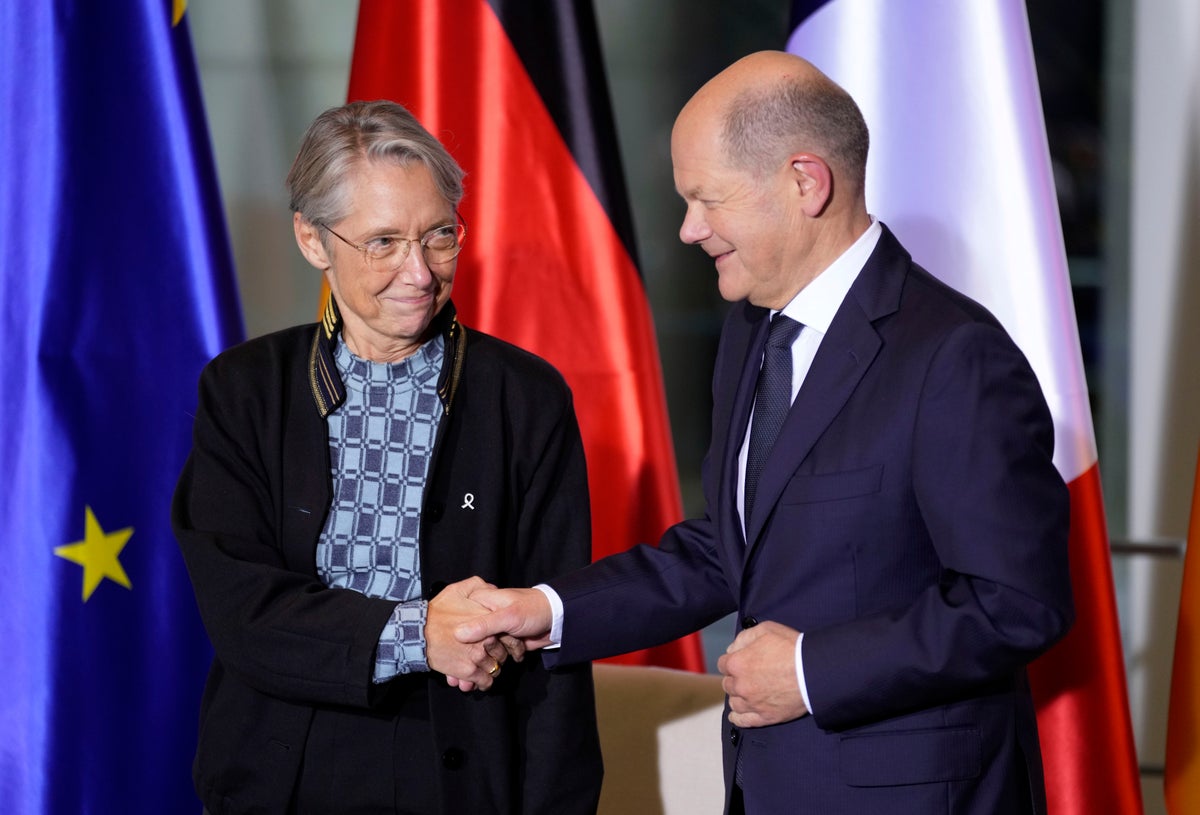
Germany and France pledged Friday to provide each other mutual support in preventing a possible energy crisis after supplies from Russia dried up amid the war in Ukraine.
As part of a joint agreement signed by German Chancellor Olaf Scholz and French Prime Minister Elisabeth Borne, Germany will provide France with electricity while getting much-needed natural gas in return.
“Friends help each other in need,” Scholz said after the signing ceremony in Berlin.
Borne echoed that sentiment, saying the friendship between the two European heavyweight was crucial. “It has already proved it can withstand tests and master many challenges,” she said.
Before Russia launched its war in Ukraine nine months ago, Germany was heavily reliant on Russian gas supplies. Since then, Germany has scrambled to find other sources, including by ramping up imports of liquefied natural gas.
France, meanwhile, is struggling to meet its electricity needs due to repairs at several of the country's nuclear power plants. There are concerns that a sharp rise in electricity demand from France this winter, coupled with lower production in Germany and limited transmission capacity in Europe, could strain the continent's grid.
In response, France said it would provide up to 100 gigawatt hours of gas per day to Germany. Meanwhile, Germany will “maximize the interconnection capacity” for electricity exports.
Berlin will also allow “all available reserve power plants to enter back into the market and postpone the phase-out of the remaining nuclear power plants until mid-April 2023 in order to even provide additional electricity trading volumes to France,” according to the agreement.







